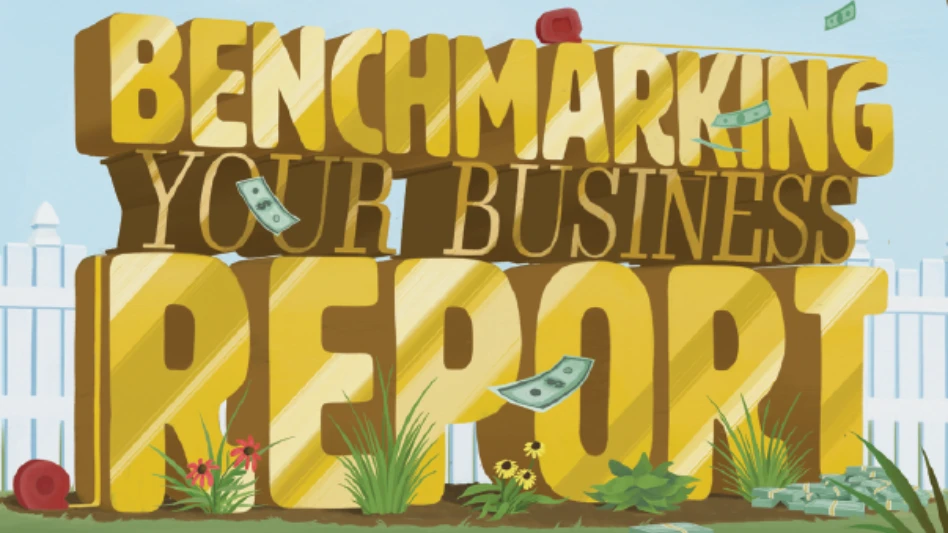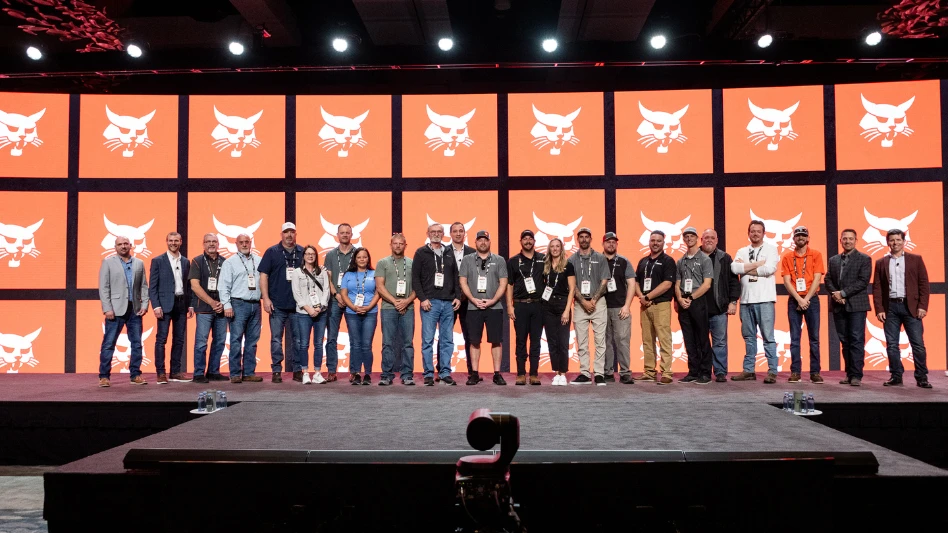 The Internal Revenue Service can be tough on collecting income taxes, but is even tougher where payroll taxes are concerned. Mistakes in withholding and paying over withheld taxes to the IRS can be expensive even, as the IRS recently revealed, when a third-party payroll service is involved.
The Internal Revenue Service can be tough on collecting income taxes, but is even tougher where payroll taxes are concerned. Mistakes in withholding and paying over withheld taxes to the IRS can be expensive even, as the IRS recently revealed, when a third-party payroll service is involved.
Every employer faces countless rules and regulations regulating the payments made by the snow removal and ice management business to its workers. There are rules that dictate when – and which – workers must be paid overtime, the amount of taxes that must be withheld and when they must be paid over to the IRS. Unfortunately, the potential for even more payroll problems recently increased for many snow removal contractors and businesses when the U.S. Department of Labor (DOL) proposed new payroll-related rules.
Overtime burden increased.
A study from CareerBuilder found almost two-thirds of American workers think the eight-hour workday is a thing of the past — and the DOL agrees. While the DOL’s recent proposal didn’t go quite as far as California which considers checking email when not at work as overtime, they have proposed new rules for overtime pay.
The DOL’s rules do not limit either the number of hours in a day or the number of days in a week that an employer may require an employee to work, as long as the employee is at least 16 years old. Similarly, the DOL does not limit the number of hours of overtime that may be scheduled. However, the rules do require employers to pay covered employees not less than one and one-half times their regular rate of pay for all hours worked in excess of 40 in a workweek, unless the employees are otherwise exempt.
The rules recently proposed by the DOL would raise the threshold at which workers making up to about $50,000 annually, even those classified as managers and currently exempt from overtime rules governing hourly employees, would qualify for overtime pay under the FLSA (Fair Labor Standards Act). States have a variety of different overtime protections. The current salary threshold, set in 2004, is $455 per week ($23,660 per year). The finalized rule is expected to take effect in 2016.
The DOL’s other rules.
Of course, not all employees or all snow removal businesses are covered by all of the DOL’s rules. Exceptions include employees of retail stores and service establishments with annual gross receipts less than $500,000, outside salespeople and executive, administrative and professional personnel.
Remember, however, snow operations not covered by the federal laws are most likely subject to similar overtime laws in their state. Where an employee is subject to both the state and federal overtime laws, the employee is entitled to overtime according to the standard that will provide the higher rate of pay.
Many industries hire seasonal employees for a variety of different reasons – amusement parks may need more staffers during the summer months, and department stores may need more cashiers during the Christmas shopping season. Seasonal employees are employees that will only work during these busier periods.
Unfortunately for those in the business of snow removal or ice management, there is no definitive answer to whether or not seasonal employees are entitled to overtime. Wage and employment law varies from state to state, so checking local regulations is vital.
Correct definitions.
Employees are treated as taxable workers subject to payroll taxes, while independent contractors are responsible for paying their own taxes. Workers can be either employees or independent contractors, although both the DOL and the IRS are often skeptical of either label.
The line between independent contractors and employees are not always clear-cut. Usually, workers are considered employees if the snow removal business has the right to direct and control the way they do their work, rather than merely the results of the work. However, just because a worker agrees to be paid as an independent contractor doesn’t mean it’s legal.
Husband and wife businesses.
Spouses who jointly own and operate a snow removal business and share in the profits and losses are considered partners, regardless of whether there is a formal partnership agreement.
The wages of an individual who works for his or her spouse in a trade or business other than a partnership are subject to income tax withholding and Social Security and Medicare taxes – but not Federal Unemployment Tax Act (FUTA) tax.
Payments to a child under age 18 who works for his or her parent are not subject to Social Security and Medicare taxes if the trade or business is a sole proprietorship or a partnership in which each partner is a parent of the child.
Payments to a child under age 21 who works for his or her parent in a trade or business are not subject to Federal Unemployment Tax Act (FUTA) tax. The wages of a child are subject to income tax withholding as well as Social Security, Medicare and FUTA taxes if he or she works for
- A corporation, even if it is controlled by the child's parent;
- A partnership, even if the child's parent is a partner, unless each partner is a parent of the child, or;
- An estate, even if it is the estate of a deceased parent.
ACA confusion.
The Affordable Care Act (ACA) redefined full-time employment, at least when it comes to its controversial benefits and penalties.
First, every snow removal contractor and business owner should understand that the ACA’s taxes and tax credits are based on the number of full-time equivalent employees (FTE) and their average annual wages -- not on the number of full-time employees.
In simple terms FTE or “full-time equivalent” equals (the total number of full-time employees) plus (the combined number of part-time employee hours divided by 30). Seasonal employees, contractors and business owners don’t count toward the total for most businesses.
And don’t forget the Medicare tax hike. The Medicare Part A tax is paid by both employees and employers. Often overlooked, however, is the fact that a contractor or business with profits over $250,000 faces a .9 percent increase (from 2.9 percent to 3.8 percent), on the current Medicare Part A tax.
Since this tax is split between the employer and employee, they will both see a .45 percent increase. Small businesses making under $250,000 are exempt from the tax. Employees making less than $200,000 as an individual, or $250,000 as a family, are also exempt.
Payroll taxes
All employers are required to collect and remit payroll taxes. Uncle Sam is reportedly gunning for small businesses with delinquent payroll tax problems. Because small businesses are the largest contributors to the annual tax gap, the IRS appears to be cracking down on them.
While some payroll taxes are not payable by the snow removal business, they must be collected as withholding and turned over to the IRS.
Failure to collect and pay over those taxes can mean a 100 percent penalty tax – accruing additional penalties and interest the longer it goes unpaid.
Approximately 40 percent of small businesses use a third-party payer for tasks ranging from paying employees to Federal employment taxes, according to the Treasury Inspector General for Tax Administration (TIGTA).
While third-party payer arrangements usually work as intended, there have been instances in which third-party payers receive funds from employers for payment of payroll taxes, but they have not remitted those taxes to the IRS.
This causes significant problems for employers because the funds have been expended but the taxes are still due.
In a recent audit the TIGTA (Treasury Inspector General for Tax Administration) evaluated whether controls are adequate to protect the taxpayer’s and Government’s interests when third-party payroll providers are not compliant with payment and filing requirements.
Until the IRS is able to connect missing payments for withheld taxes to the employer, the clock continues to tick on those unpaid payroll taxes as well as interest and penalties.
Reduce penalties.
One of the nastiest and most feared taxes currently imposed is the “Trust Fund Penalty Tax,” a whopping 100 percent penalty on payroll taxes withheld from a snow removal business’s employees, but not forwarded to the federal government.
The fear stems from the IRS’s authority to assess the penalty on all “responsible parties,” a label that can include the owners, shareholders, partners, members, managers and officers in a snow removal or ice management business.
But avoiding payroll tax penalties, especially those that result from audits is possible. Reducing payroll tax penalties levied as the result of an IRS audit or even resulting from errors detected by the snow removal operation itself begins with simply asking the IRS to abate or eliminate the payroll tax penalty. Yes, they have the discretion to waive penalties, especially if the penalty is the exception, not the rule.
Obviously, understanding the basic rules for withholding payroll taxes — and the requirement to pay over withheld amounts — on the wages of all employees in the snow removal business is a good start.
Guidance and advice from a competent, qualified advisor is virtually a necessity.
The author is a financial writer based in Ardmore, Pa.
Latest from Lawn & Landscape
- Exmark launches autonomous commercial mower
- North by Northwest's charitable act for the Ronald McDonald House Charities
- Coxreels expands V-100 Series product line
- Landscape Workshop expands with 2 acquisitions
- Wilson360 adds Daniel Grange as new consultant
- Batman and business
- CH Products releases new tree stabilizer
- Savannah Bananas founder Jesse Cole to speak at Equip Exposition





